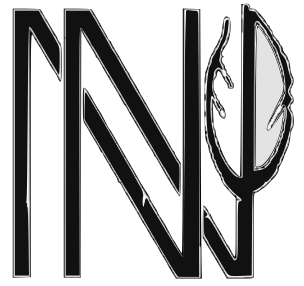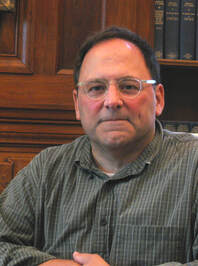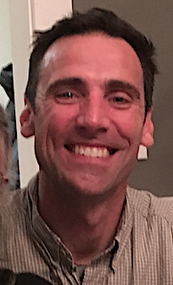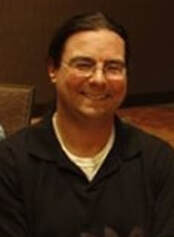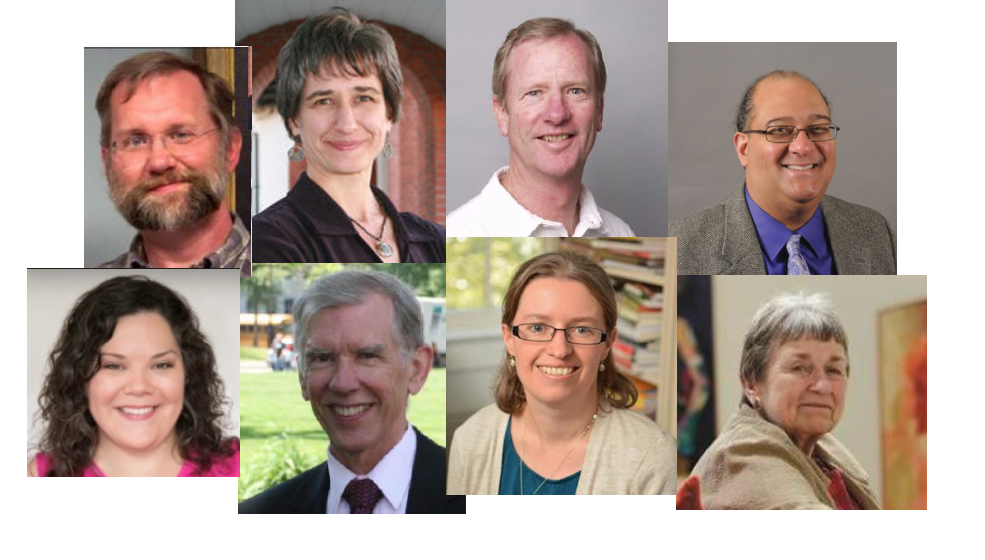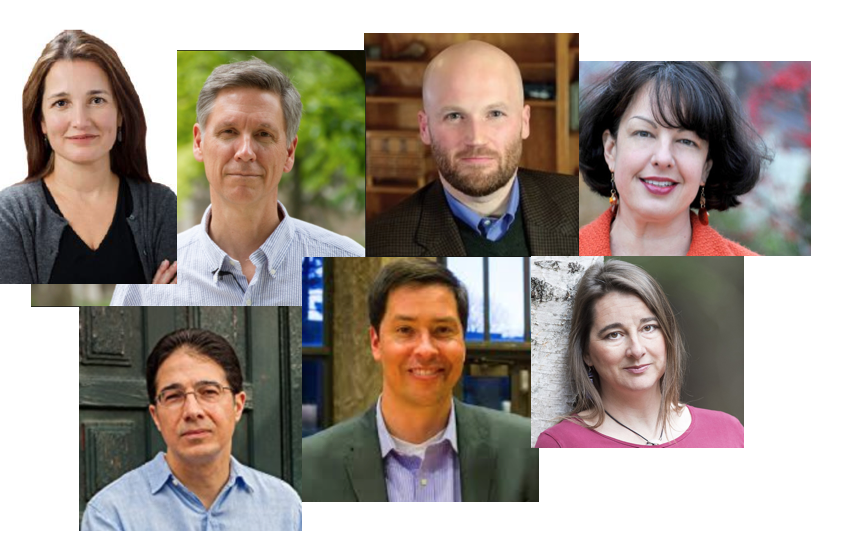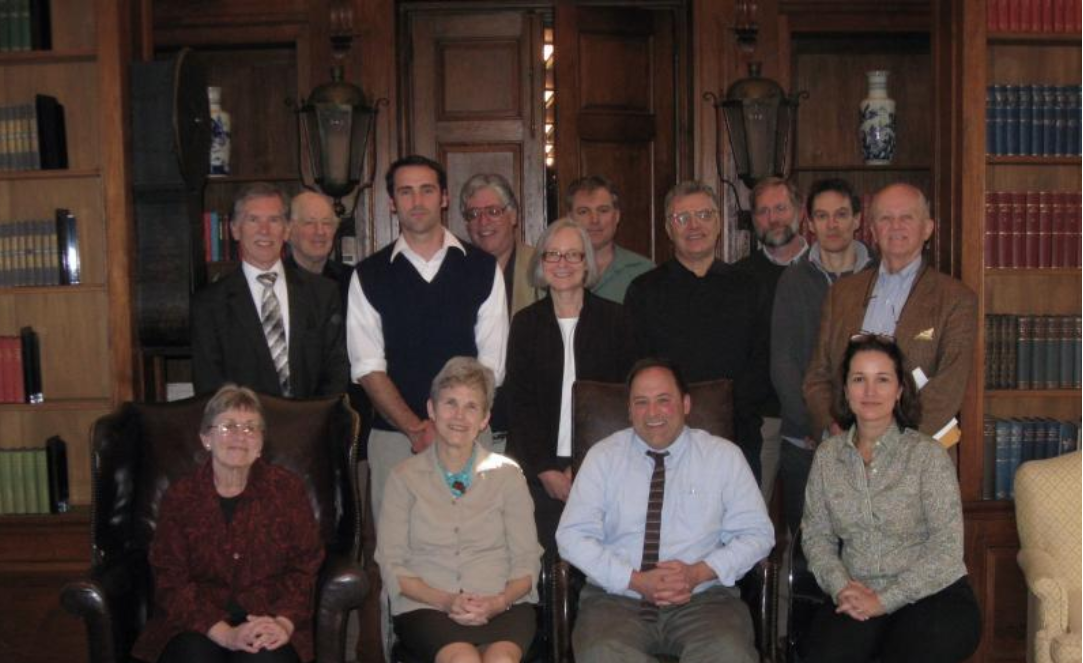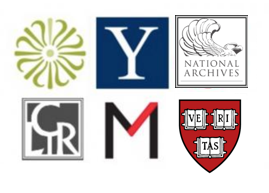Meet the Staff
Paul Grant-Costa
Co-Director
|
Paul holds a Ph.D. in Theoretical Linguistics from the University of Connecticut, a J.D. (International Law and Human Rights) from the University of Connecticut School of Law, and a Ph.D. in American Studies from Yale University. He has worked as an archeological researcher in Connecticut, Massachusetts, Rhode Island, and New York, Senior Researcher at the Mashantucket Pequot Museum & Research Center, a post-doctoral editorial
|
Tobias Glaza
Co-Director
|
A former senior researcher at the Mashantucket Pequot Museum and Research Center and land management coordinator for the Eastern Pequot Tribal Nation, Tobias holds a M.A in Ethnobotany from Connecticut College. In addition to his more recent work with Connecticut Native people, he has worked for the Bad River Band of Lake Superior Ojibwe, Great Lakes Indian Fish and Wildlife Commission and on a variety of projects in New England including the Boston Harbor Islands Ethnographic Assessment for the National Park Service and the federal
|
Tribal Community Scholars
|
Brothertown Indian Nation
|
Courtney Cottrell Gerzetich
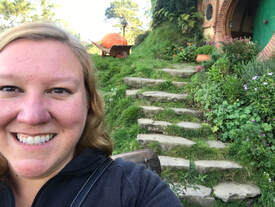
Courtney Cottrell Gerzetich is the Tribal Historic Preservation Officer (THPO) for the Brothertown Indian Nation. She has held this position for 16 years. She received her PhD from the University of Michigan in Anthropology and has put her degree to good use as a museum professional. She works mainly with tribal museums across the Midwest, aiding in collections concerns, archival questions, and digitization projects. She currently is the Museum Registrar for the Oneida Nation and a Lecturer for Anthropology at the University of Wisconsin-Green Bay.
Craig Cottrell
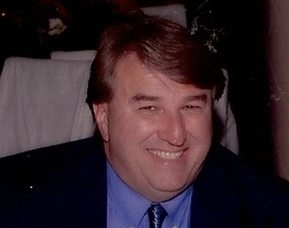
Craig Cottrell has spent the past 30 plus years learning and working with a multitude of Native American Organizations. A member of the Brothertown Indian Nation, he has served in numerous capacities. In 1987 he began a journey which continues today. Craig was Brothertown Indian Nation treasurer for over 12 years. He also was elected as Vice Chairperson and Tribal Councilor for many years. Craig was the fiscal agent for the Brothertown Indian Infrastructure Grant received from ANA. As a gaming industry account executive, he has worked with Sodak Gaming and IGT the leaders in tribal gaming development partnerships.
Over the years, Craig has provided council to most of his clients. He has rendered assistance in tribal governance, business enterprise organization, and is very proud of being a part of Tribal Sovereignty growth. Craig has lived and worked in the upper Midwest his entire career. He grew up in Oneida, Wisconsin.
\
Over the years, Craig has provided council to most of his clients. He has rendered assistance in tribal governance, business enterprise organization, and is very proud of being a part of Tribal Sovereignty growth. Craig has lived and worked in the upper Midwest his entire career. He grew up in Oneida, Wisconsin.
\
Renee Gralewicz
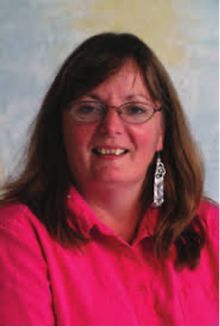
Aquy! Greetings. I’m Renee Gralewicz, the daughter of Theresa and Leonard, the granddaughter of Henrietta and Howard, and the great granddaughter of Tressy (nee Quinney) and Samuel Brushel. We are members of the Turtle Clan. I’m an enrolled member of the Brothertown Nation and descendant of the Stockbridge-Munsee Band of Mohicans. Like many, I hold several titles such as US Army Major (Retired) and Fulbright Scholar, but none more honorable and humbling than Elder and Peacemaker for Brothertown. I proudly served on tribal council for several years.
My passion for learning sustained me throughout my years of teaching. My research interests always focused on helping make my communities healthier and welcoming to all. The past decade or two I’ve more closely attended to indigenous communities. Since retirement, my energies have been put into understanding, teaching, and sharing information about missing and murdered indigenous peoples. I currently am a member of the Wisconsin Department of Justice Missing and Murdered Indigenous Women, Girls, and 2 Spirit Task Force.
My passion for learning sustained me throughout my years of teaching. My research interests always focused on helping make my communities healthier and welcoming to all. The past decade or two I’ve more closely attended to indigenous communities. Since retirement, my energies have been put into understanding, teaching, and sharing information about missing and murdered indigenous peoples. I currently am a member of the Wisconsin Department of Justice Missing and Murdered Indigenous Women, Girls, and 2 Spirit Task Force.
Walter Blanc
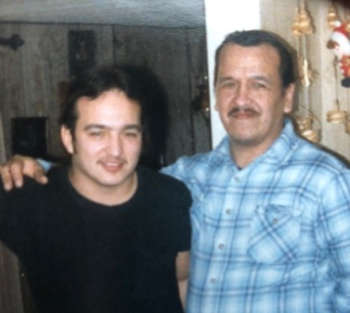
Boozhoo. I’m Walter Blanc, my friends call me Skip, like they do my father. I’ve lived my life learning and carrying on the traditions of my ancestors. My father often brought me along as he too learned from elders. From early on I learned how to work with my hands while being guided by my heart. I learn best by watching and practicing. This includes rebuilding old cars as well as beading, woodwork, and other crafts.
My parents, Walter and Pat, have given me the strength to listen, learn, and laugh. These gifts allowed me to work with many elders of various tribes and nations. It is from them that I learned to love traditions and now share them with others.
I worked for the National Forest Service for many decades. Here I learned to feel comfortable and welcomed within all the landscapes Mother Earth offers. She’s taught me many lessons, and some not too gently. I learned to respect her and all the Creator’s gifts. I work with the Brothertown Nation for many years before I took on the mantle of leadership. I accepted the nomination and was elected as a Council Member and humbly serve my relatives.
This is one of my favorite pictures of me with my father.
My parents, Walter and Pat, have given me the strength to listen, learn, and laugh. These gifts allowed me to work with many elders of various tribes and nations. It is from them that I learned to love traditions and now share them with others.
I worked for the National Forest Service for many decades. Here I learned to feel comfortable and welcomed within all the landscapes Mother Earth offers. She’s taught me many lessons, and some not too gently. I learned to respect her and all the Creator’s gifts. I work with the Brothertown Nation for many years before I took on the mantle of leadership. I accepted the nomination and was elected as a Council Member and humbly serve my relatives.
This is one of my favorite pictures of me with my father.
Stockbridge Munsee Community
Carol Goss
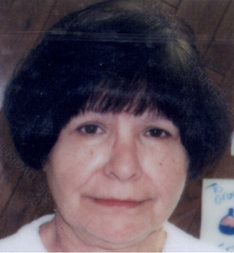
My name is Carol Goss, born September 19th, 1940 to Roy W. Miller and Louanna Tousey in Tomah, WI, enrolled member of the Stockbridge-Munsee Community located in Bowler, WI. Carol married and lived in Eau Claire, WI. After her husband passed away, she and her three children moved back to the community. Carol worked for the tribe in various capacities and presently serves on the Stockbridge-Munsee Enrollment Committee. Researching for her family ancestors became of great satisfaction as it enhanced her capabilities to assist other’s in their endeavor to find their family lineage.
Judy Hartley
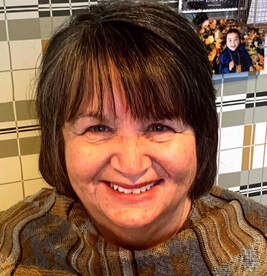
My name is Judy Hartley. I am a member of Stockbridge-Munsee/Band of Mohicans and spent the first 18 years of my life on the tribal reservation in northern Wisconsin. Historically, our ancestral lands are in parts of present day New York, Massachusetts and Vermont. I have visited our ancestral lands many times with family and on tribal history trips. Each trip is a profoundly moving experience and has left me wanting to learn more about my ancestors. I am a tribal elder who has researched tribal history, written poetry, given speeches and am now excited to be part of the Tunxis study.
I am a research biologist by profession with a B.S. and MBA. At age 77, I still work full-time for a global pharmaceutical and diagnostic company.
I am a research biologist by profession with a B.S. and MBA. At age 77, I still work full-time for a global pharmaceutical and diagnostic company.
Faith Bowman
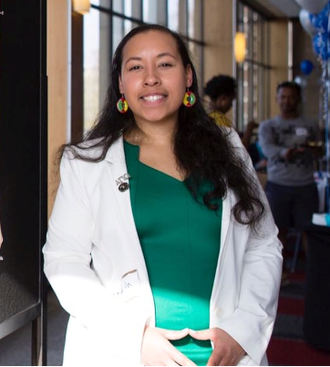
Faith Bowman is a proud Indigenous scholar from the Mohican Nation. Faith received her B.S in Genetics from the University of Wisconsin-Madison and minors in American Indian Studies as well as Leadership and Involvement. Faith is currently, a doctoral candidate in the department of biochemistry at the University of Utah, researching glucose regulation in the context of diabetes and heart failure. She aims to obtain an administrative position at a research-1 university, non-profit, or federal research laboratory working with tribal health boards and urban Indian health organizations.
In this career, she seeks to make an impact by serving as an advocate and touchstone for under-represented minority communities seeking knowledge on metabolic dysfunction; to serve as a contributor to the construction of culturally responsive therapies and health policies; and to participate in educational workshops aimed at improving scientific literacy, decolonizing data, and increasing data representation overall. It is her hope that culturally responsive research studies and interventions aimed at addressing the unique biochemical, metabolic, and cultural needs of Native Americans will help improve Native health policies and programs.
As a Native community scholar on the NEH Project, Faith is looking forward to digging into her community’s history and understanding how the historical journey of a native nation influences how a tribal community approaches/participates in research and its subsequent impact in the age of self-determination in regard to Native health policy and Native health programs – both urban and tribal community initiatives.
In this career, she seeks to make an impact by serving as an advocate and touchstone for under-represented minority communities seeking knowledge on metabolic dysfunction; to serve as a contributor to the construction of culturally responsive therapies and health policies; and to participate in educational workshops aimed at improving scientific literacy, decolonizing data, and increasing data representation overall. It is her hope that culturally responsive research studies and interventions aimed at addressing the unique biochemical, metabolic, and cultural needs of Native Americans will help improve Native health policies and programs.
As a Native community scholar on the NEH Project, Faith is looking forward to digging into her community’s history and understanding how the historical journey of a native nation influences how a tribal community approaches/participates in research and its subsequent impact in the age of self-determination in regard to Native health policy and Native health programs – both urban and tribal community initiatives.
Board of Advisors
Tisa Wenger, (Chair), Department of Religious Studies/American Studies, Yale University
Claire Bowern, Department of Linguistics, Yale University
Lisa Brooks (Abenaki), Professor of English and American Studies, Amherst College
Jody Blankenship, Executive Director, Connecticut Historical Society & Museum
Philip J. Deloria (Dakota), American Studies, Harvard University
J. Kēhaulani Kauanui (Kanaka Maoli), Departments of American Studies and Anthropology, Wesleyan University
Alyssa Mt. Pleasant (Tuscarora), Department of Transnational Studies, The State University of New York at Buffalo
Kenneth Minkema, Executive Editor, The Works of Jonathan Edwards, Yale University
Stephen Pitti, Director, Center for the Study of Race, Indigeneity and Transnational Migration, Yale University
Elizabeth Theobald Richards (Cherokee), Director of Creative Strategies, The Opportunity Agenda, NYC; Program Officer Ford Foundation (2003-2010)
David J. Silverman, Department of History, George Washington University
Harry Stout, Yale Divinity School, Department of Religious Studies, Yale University
Kendall Wiggin, Connecticut State Librarian, Connecticut State Library
J. Cedric Woods (Lumbee), Director, Institute for New England Native American Studies, Boston, MA
Claire Bowern, Department of Linguistics, Yale University
Lisa Brooks (Abenaki), Professor of English and American Studies, Amherst College
Jody Blankenship, Executive Director, Connecticut Historical Society & Museum
Philip J. Deloria (Dakota), American Studies, Harvard University
J. Kēhaulani Kauanui (Kanaka Maoli), Departments of American Studies and Anthropology, Wesleyan University
Alyssa Mt. Pleasant (Tuscarora), Department of Transnational Studies, The State University of New York at Buffalo
Kenneth Minkema, Executive Editor, The Works of Jonathan Edwards, Yale University
Stephen Pitti, Director, Center for the Study of Race, Indigeneity and Transnational Migration, Yale University
Elizabeth Theobald Richards (Cherokee), Director of Creative Strategies, The Opportunity Agenda, NYC; Program Officer Ford Foundation (2003-2010)
David J. Silverman, Department of History, George Washington University
Harry Stout, Yale Divinity School, Department of Religious Studies, Yale University
Kendall Wiggin, Connecticut State Librarian, Connecticut State Library
J. Cedric Woods (Lumbee), Director, Institute for New England Native American Studies, Boston, MA
- Advisor Emeritus: David Scott, Associate Editor, History of Parliament, London
- Advisor Emeritus: John Demos, History Department (retired), Yale University
Subject Specialists & Consultants
Nicholas Bellantoni, Connecticut State Archaeologist
Ned Blackhawk (Western Shoshone), History Department, Yale University
James Caudle, Research Associate, Robert Burns Editions, University of Glasgow
Christine DeLucia, History Department, Williams College
John Mack Faragher, History Department, Yale University (retired)
Jeffrey Glover, Department of English, Loyola University
Rae Gould (Nipmuc), Associate Director, Native American and Indigenous Studies Program, Brown University
Pekka Hämäläinen, Rothermere American Institute, University of Oxford
Russell Handsman, Research Anthropologist, Independent Consultant
Karen Ordahl Kupperman, Department of History, New York University
Elizabeth Mancke, Canada Research Chair, University of New Brunswick
Daniel Mandell, Department of History, Truman State University
Michael Sletcher, Stanford University OHS, Stanford University
David Smith, Faculty of History, Cambridge University
Cheryll Toney Holley (Nipmuc), Chief and Historian of the Hassanamisco Band of Nipmuc
John Warner, Archivist of the Commonwealth of Massachusetts
Wendy Warren, History Department, Princeton University
Melissa Tantaquidgeon Zobel (Mohegan), Tribal Historian/Medicine Woman, Mohegan Tribe
Ned Blackhawk (Western Shoshone), History Department, Yale University
James Caudle, Research Associate, Robert Burns Editions, University of Glasgow
Christine DeLucia, History Department, Williams College
John Mack Faragher, History Department, Yale University (retired)
Jeffrey Glover, Department of English, Loyola University
Rae Gould (Nipmuc), Associate Director, Native American and Indigenous Studies Program, Brown University
Pekka Hämäläinen, Rothermere American Institute, University of Oxford
Russell Handsman, Research Anthropologist, Independent Consultant
Karen Ordahl Kupperman, Department of History, New York University
Elizabeth Mancke, Canada Research Chair, University of New Brunswick
Daniel Mandell, Department of History, Truman State University
Michael Sletcher, Stanford University OHS, Stanford University
David Smith, Faculty of History, Cambridge University
Cheryll Toney Holley (Nipmuc), Chief and Historian of the Hassanamisco Band of Nipmuc
John Warner, Archivist of the Commonwealth of Massachusetts
Wendy Warren, History Department, Princeton University
Melissa Tantaquidgeon Zobel (Mohegan), Tribal Historian/Medicine Woman, Mohegan Tribe
